
The Tulsi plant is a sacred traditional medicine. This plant is known as the ‘queen of herbs’ & is called Holy basil. Where the tulsi plant grows everyone must protect the plant for their growth due to its enormous medicinal value.

This plant are in different types such as mint, stevia plant, Holy basil (Krishna tulsi), Rama tulsi (green leaves), Wild leaf basil , Kapoor basil, and many more.

This Mint basil is also called Vicks tulsi. This plant is closely related to holy basil where the leaves emit a mint fragrance while tasting. It cures many bronchial & respiratory diseases.

This plant is also called sweet or seeni tulsi in Tamil.This plant is a natural sweetener and has approximately 200 to 300 times more sweetness than table sugar. The perfect alternative to table sugar or artificial sugars for diabetic patients. In addition to this stevia plant leaves contain low calories and help in weight loss.

This holy basil is popularly called Krishna Tulsi. The leaves are purple with mild black shades. It is a perennial evergreen herb. Used for both spiritual & medicinal purposes.
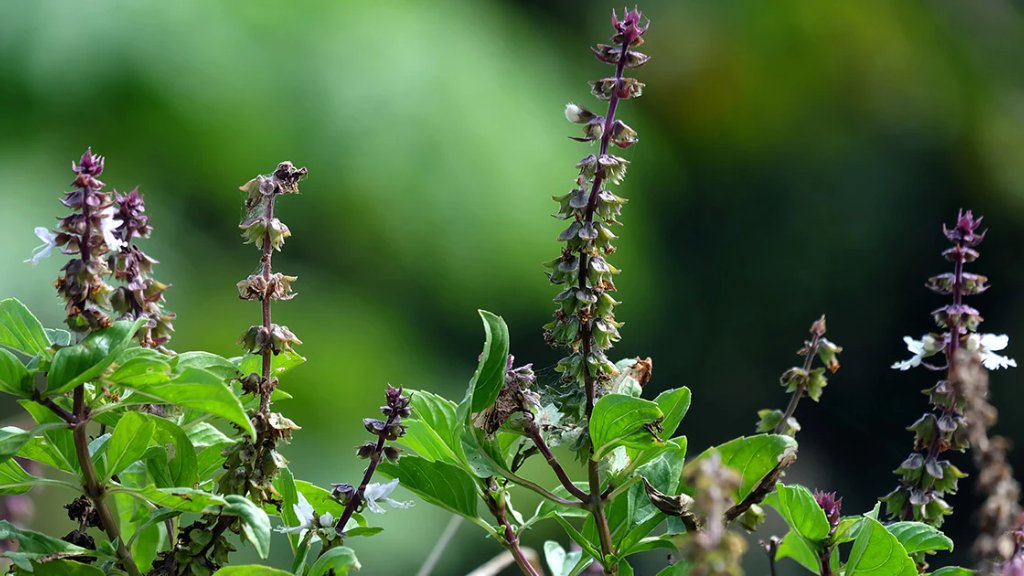
This is also called Rama, Sri, or Lakshmi Tulsi. And it is native to the Indian subcontinent. This basil plant is set for vastu in front of home & worshipped where Lord Krishna resides in this called as brindhavanam.

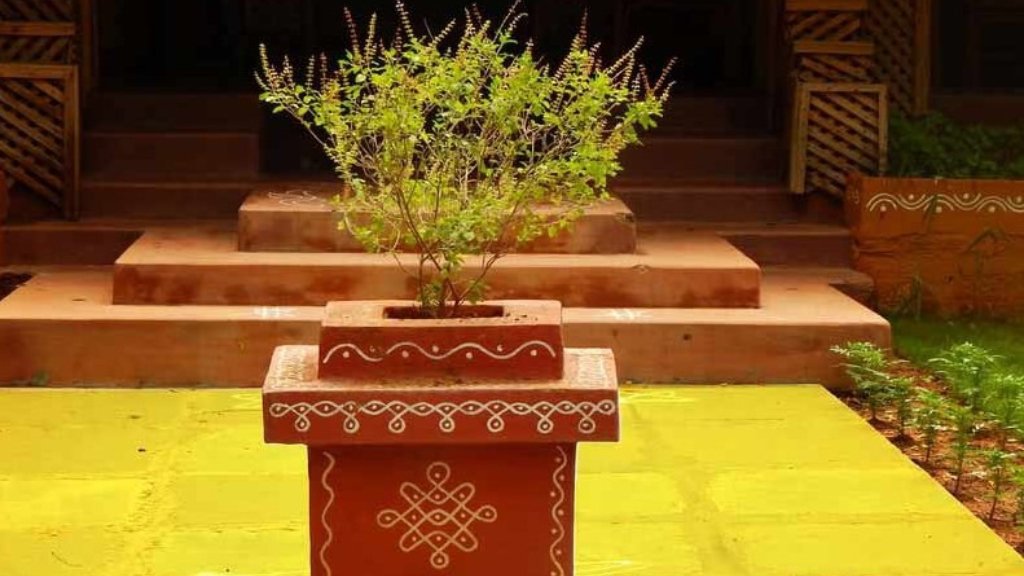
This plant is found more under the foothills of the Himalayas.
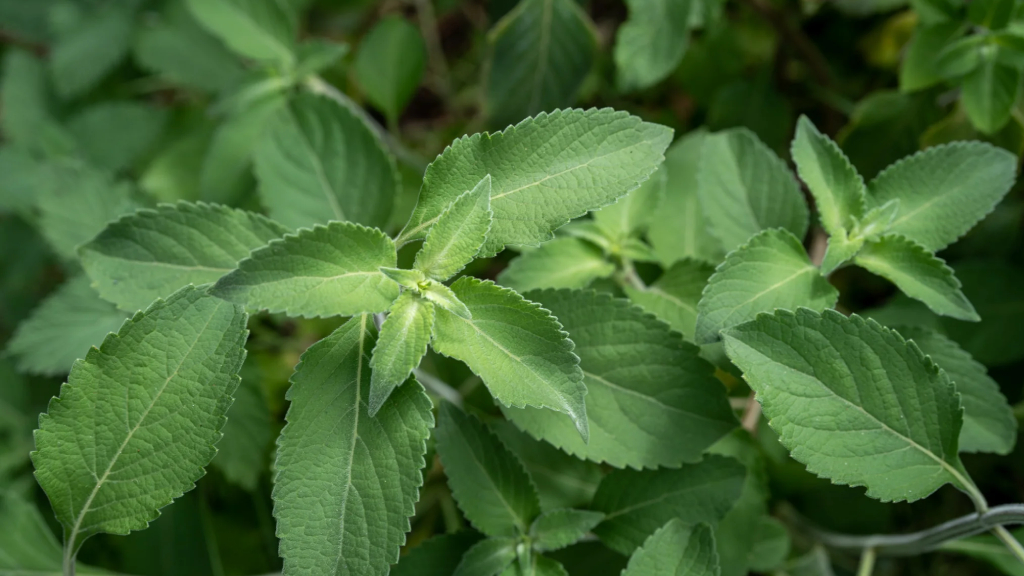
Leaves of this basil plant emit a camphor smell. And it is a short, perennial plant.

Holy Basil tree grows up to a height of 1 meter in height as an aromatic shrub with a tap root system.
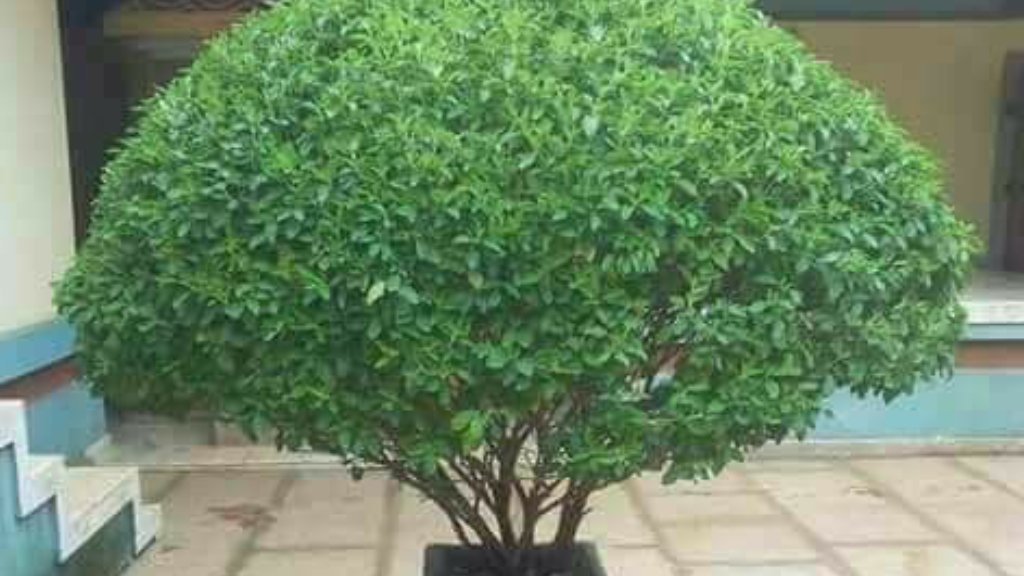
The fastest & beneficial method of basil plant propagation is through seeds. Seeds propagate naturally by means of air or propagated by dried florets.
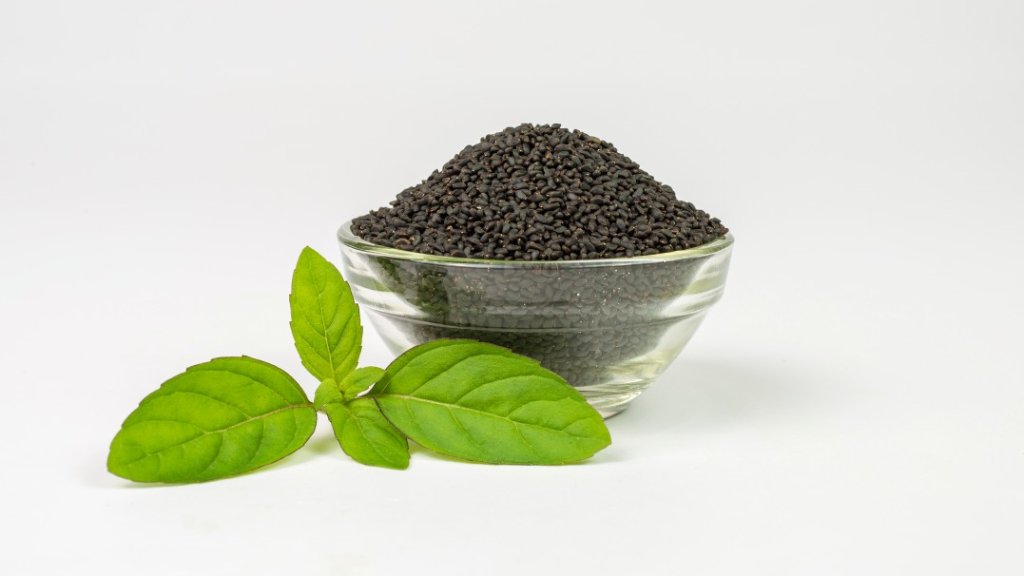
It grows in well-drained soil mostly sandy loam structure or good organic potting mix. Avoid water–logging & saline soils.
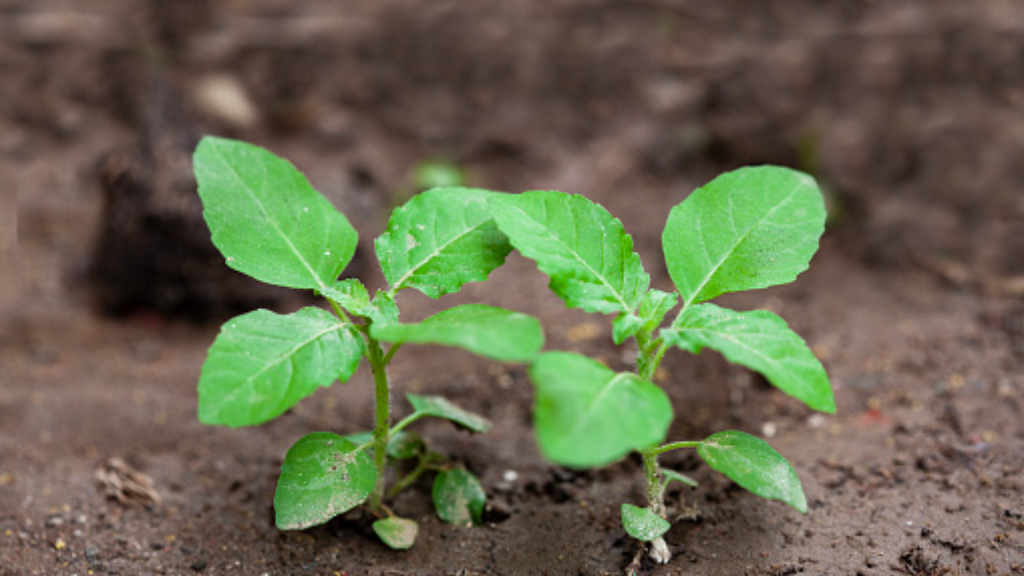
As this plant is drought tolerant and does not require watering the plants often. Water the plants once in 4 days.
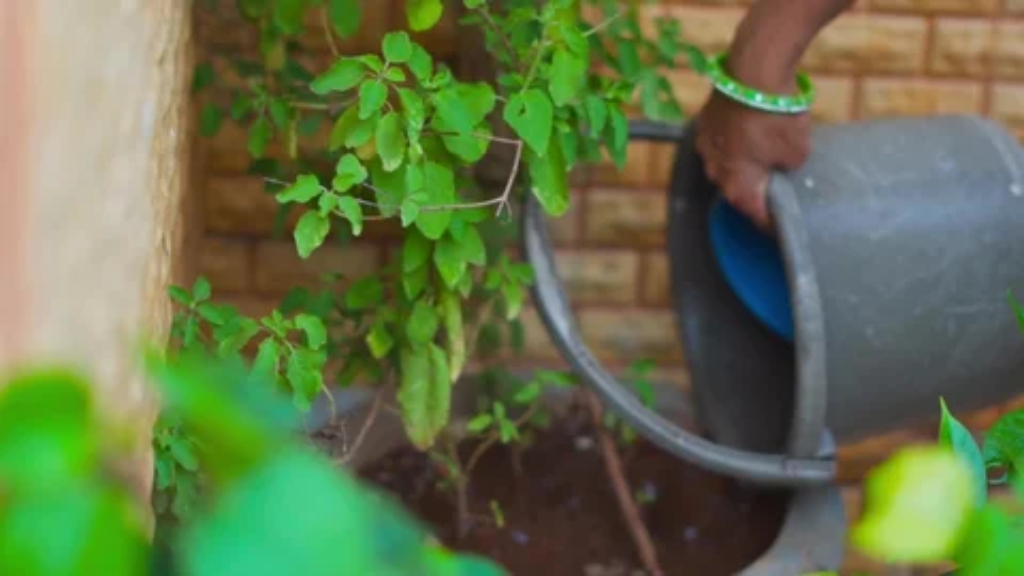
The basil plants are sun-loving plants that require direct sunlight for about 6-7 hours.
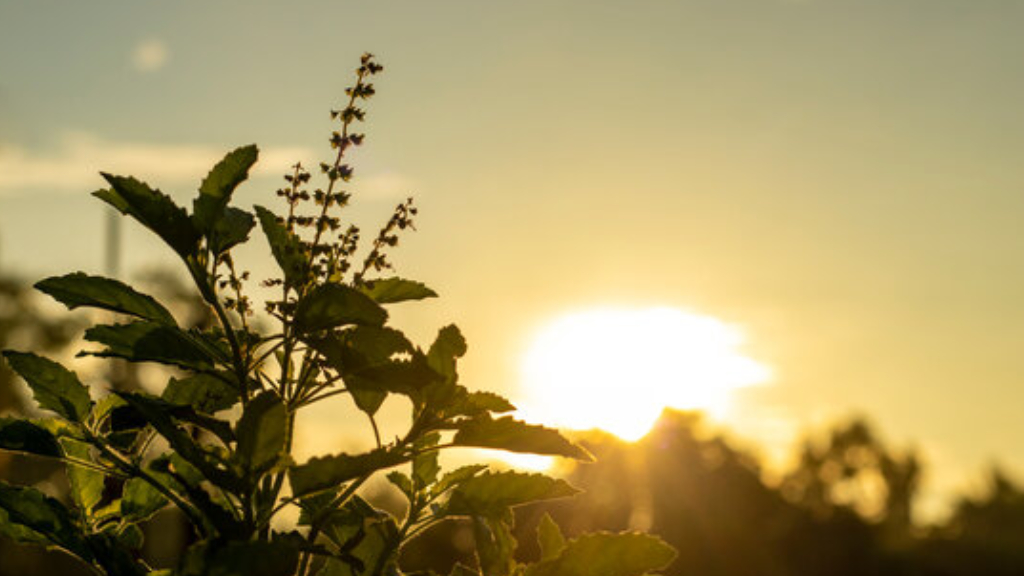
Application of organic fertilizer vermicompost 15 days once helps to improve plant growth & soil fertility.
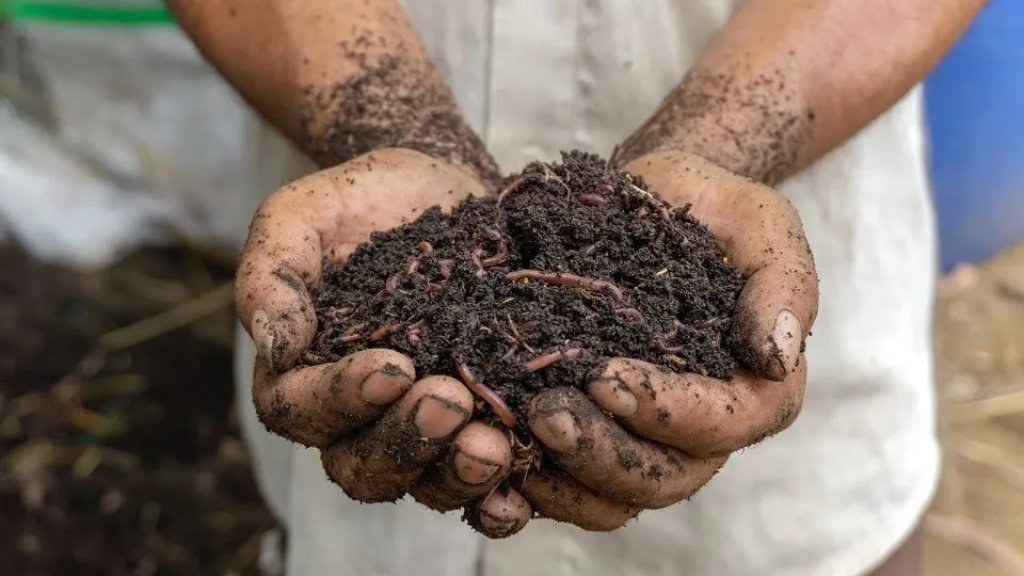
Transfer the plants to new large-size pots when the root growth seems to grow through drainage holes. Repot the plants once in 6 months.
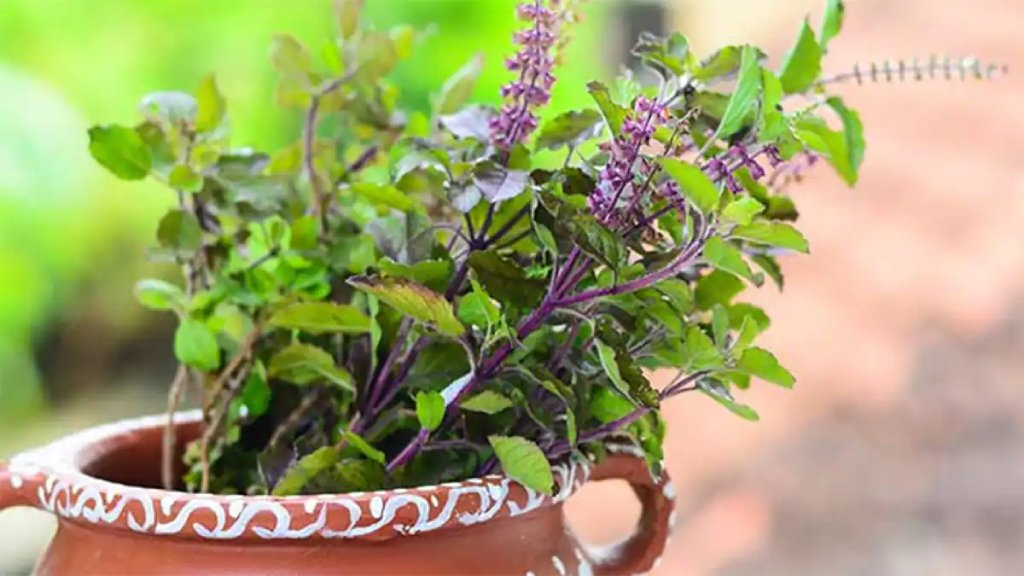
Pruning done any time of the year. Pinch the top stems with 4-6 pairs of leaves. Be sure not to remove more than half an inch of the stem.
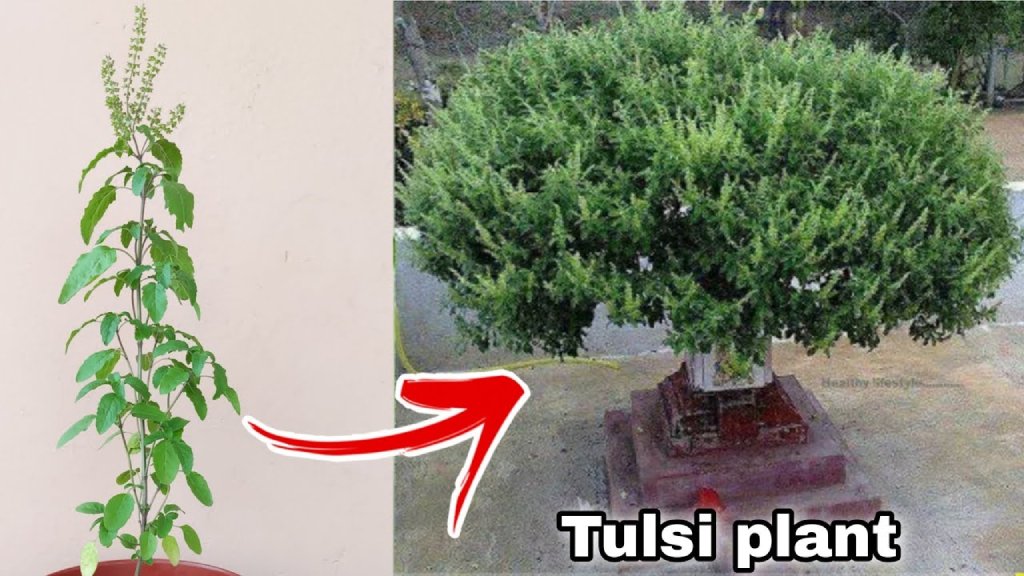
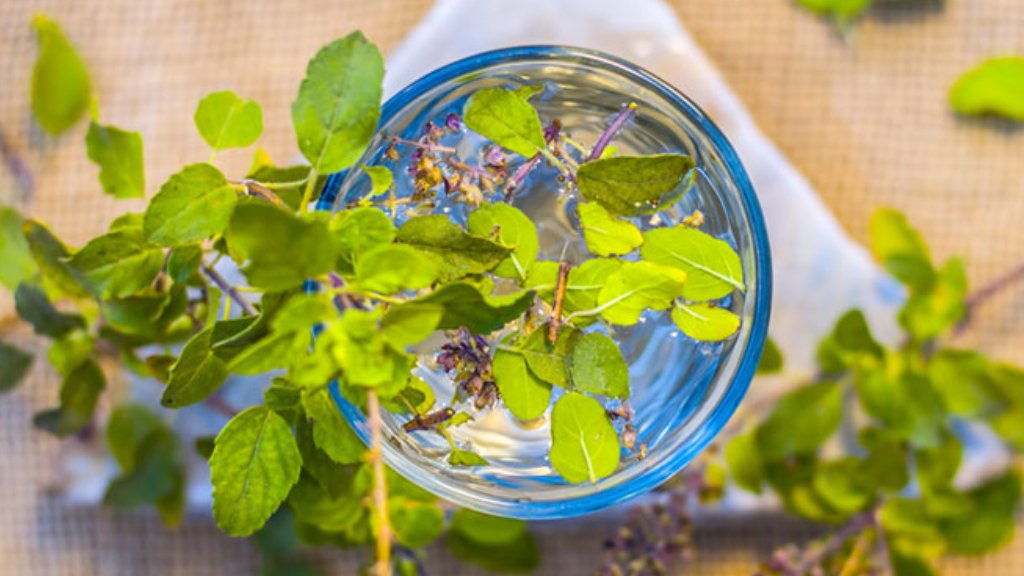
From ancient times to now, this holy basil is essential for our day-to-day life. In these pandemic times, herbal & medicinal plants help to fight against several spreading diseases & Strengthen our immune.
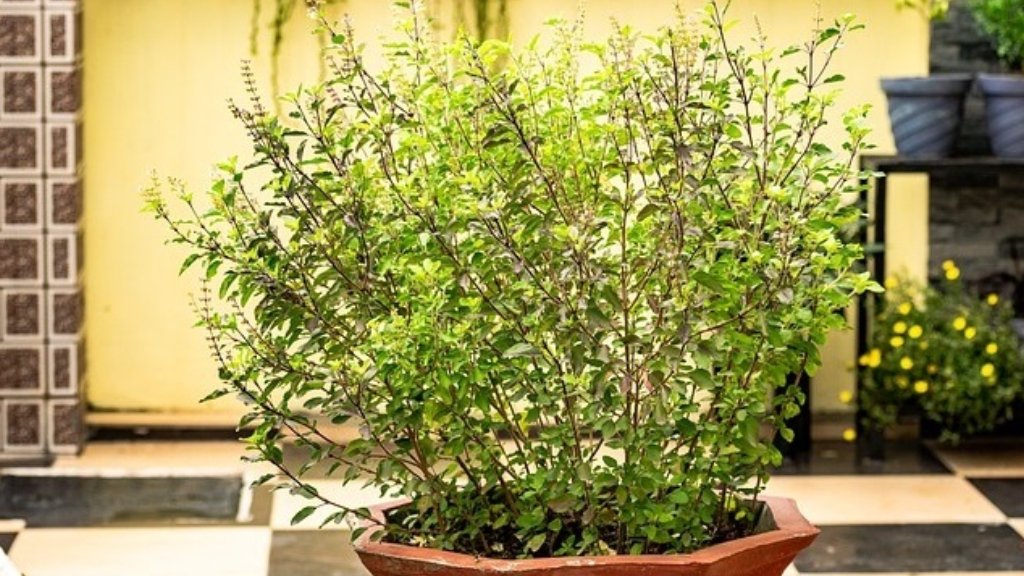
Live Green to Save More Green!
Blog created by: Santhionlineplants
Diego Simeone
Neque porro quisquam est, qui dolorem ipsum quia dolor sitdown ameto, consectetur, adipisci velit, sed quiata non numqua eius modi tempor incidunt ut labore et dolore magnam, semper quis mollis id, ullamcorper ut diam.
Reply